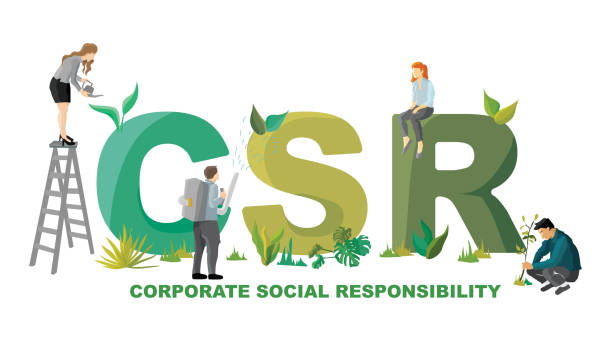In today’s interconnected world, the concept of Corporate Social Responsibility (CSR) has evolved beyond a mere buzzword to a critical component of business strategy. With increasing globalization and digitalization, companies are under heightened scrutiny from stakeholders, including consumers, investors, and regulators. This era of transparency demands that organizations not only deliver on their financial promises but also demonstrate ethical behavior and commitment to social and environmental causes.

Transparency Redefines Accountability
The digital age has empowered stakeholders with unprecedented access to information. Consumers can easily research a company’s practices, from supply chain ethics to environmental impact. Social media amplifies both praise and criticism, making reputational risk a significant concern for businesses. Consequently, transparency has become a cornerstone of CSR efforts, requiring companies to disclose their initiatives, progress, and challenges openly.
Ethical Imperatives and Stakeholder Expectations
Beyond regulatory compliance, today’s consumers and employees expect companies to uphold ethical standards. This includes fair labor practices, diversity and inclusion initiatives, and sustainable sourcing. Organizations that fail to meet these expectations risk alienating customers and losing talent to competitors who prioritize CSR. Ethical imperatives are no longer optional but central to maintaining trust and relevance in the marketplace.
Impact on Corporate Culture and Governance
CSR initiatives influence corporate culture by promoting values that resonate with employees. Engaged teams are more productive and loyal, contributing to long-term sustainability. Moreover, integrating CSR into governance frameworks ensures that ethical considerations are embedded in decision-making processes. This proactive approach mitigates risks associated with regulatory non-compliance and enhances resilience against crises.
Environmental Sustainability as a Competitive Edge
Amid growing environmental concerns, businesses are increasingly judged by their ecological footprint. Sustainability initiatives not only reduce operational costs but also attract environmentally conscious consumers and investors. From adopting renewable energy sources to implementing waste reduction strategies, companies can leverage sustainability as a competitive advantage while contributing positively to global environmental goals.

Measuring Impact and Reporting Standards
Effective CSR programs require robust measurement frameworks to assess their impact comprehensively. Key performance indicators (KPIs) may include reduction in carbon emissions, community engagement metrics, and diversity metrics. Transparent reporting based on recognized standards, such as the Global Reporting Initiative (GRI) or the UN Sustainable Development Goals (SDGs), enhances credibility and accountability, reinforcing trust with stakeholders.
Challenges and Future Trends
Despite its benefits, CSR implementation faces challenges such as resource constraints and the complexity of global supply chains. However, emerging trends offer opportunities for innovation, such as technology-driven transparency solutions and collaborative partnerships addressing systemic issues. Future-oriented companies are integrating CSR into their core business models, recognizing its potential to drive long-term value creation and resilience.

Conclusion
In conclusion, CSR in the age of transparency is not merely a corporate obligation but a strategic imperative. Companies that embrace ethical practices, environmental stewardship, and stakeholder engagement are better positioned to navigate the complexities of a globalized, digital economy. By fostering a culture of transparency and accountability, businesses can build trust, enhance their reputation, and drive sustainable growth in the long term. As expectations continue to evolve, CSR will remain integral to corporate strategy, shaping a more responsible and inclusive future for all stakeholders.
In essence, the evolution of CSR reflects a broader shift towards sustainable capitalism, where profitability aligns with purpose, and businesses play a proactive role in addressing societal challenges. This transformation underscores the interconnectedness of economic success and social progress, paving the way for a more equitable and resilient global economy.

